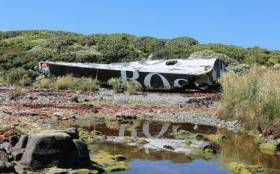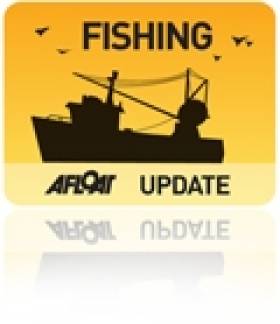Displaying items by tag: Chile
Kayaker Finds Hugo Boss Yacht Abandoned 10 Years Ago
#AlexThomson - A remains of a yacht abandoned by sailing superstar Alex Thomson a decade ago have been discovered on a remote stretch of South American coastline.
According to Yachting & Boating World, the Hugo Boss skipper was forced to abandon the IMOCA 60 after a broken keel caused a capsize just five weeks into the first leg of the 2006-2007 Velux 5 Oceans offshore race.
But a decade on, Rolex Enterprise Award winner Cristian Donoso was kayaking in the Patagonia region of southern Chile recently when he found what remains of the Hugo Boss hull, located for the first time after it was set adrift in the Southern Ocean.
It's thought that the yacht travelled around 20,000km from the spot off South Africa where Thomson and crew were rescued by fellow Velux racer Mike Golding – moving east across the Indian and Pacific Oceans – to the shoreline at Bernardo O’Higgins National Park, north-west of South America's most southern city Punta Arenas.
Thomson, a regular visitor to Ireland whose replacement Hugo Boss Open 60 stopped off at Cork Harbour in April 2014, is now making arrangements for the boat's retrieval. YBW has more on the story HERE.
Licence Application for Aran Islands Fish Farm 'To Be Lodged in January'
#FISHING - The licence application for a proposed new deep-sea fish farm in the Aran Islands is expected to be lodged in January.
As previously reported on Afloat.ie, Bord Iascaigh Mhara's (BIM) planned 15,000-tonne organic salmon farm off Inis Oírr would be the largest of its kind in Europe, and would create hundreds of jobs in the area.
Commenting on the plans, Galway West Senator Fidelma Healy Eames said it was "a major opportunity for Galway and would represent a very significant economic boost for our coastal communities."
She added: "Deep sea fish farming has proven to be very economically beneficial in countries such as Norway, Chile and Scotland. It is timely that Ireland would capitalise on our fantastic marine resources as these countries have."
According to Healy Eames, the project is expected to "meet all environmental standards and will be barely visible from 2km away and effectively not visible from land.
"It would take up a negligible amount of inshore fisheries ground in the bay (0.22%) and would not interfere with existing fishing routes or Galway Bay ferry routes."

























































